How Is Good Ground Beef Supposed to Smell
Here's How To Tell If Ground Beef Has Gone Bad
Ground beef is a dinnertime staple in many houses, as it's an affordable way to make a flavorful meal without having to spring for pricier cuts. But if you've ever stocked up on several packages of bright red ground beef only to see that's it's grayish brown inside and wondered if it's still safe to eat, you're not alone. This color change can definitely raise some red flags, but it turns out it's not as dire as you might think — in most cases, anyway. Here's how to find out if your ground beef has gone bad.
Is ground beef that's turned gray bad?
You don't need to worry if the outside of your beef is a different color than the inside. According to the USDA, ground beef appears bright red because of oxygen interacting with the pigments in the meat. If the interior of your beef is grayish brown, it's probably just because that part of the meat hasn't been exposed to oxygen, and it's safe to eat.
However, if all or a lot of the meat in the package has turned gray or brown, you should check its freshness in two ways.
First, the sniff test. Fresh ground beef may have a mild iron smell, but if it starts to smell rotten (beef tends to get a funky sweet odor), you should err on the side of caution and throw it out.
Second, the touch test. Fresh ground beef is usually cool to the touch, smooth, and slightly damp. But ground beef that's starting to go bad can feel slimy, tacky, or sticky. Once again, you shouldn't risk it if you think the texture is off — it's best to throw it out if you suspect it's starting to go bad (viaThe Takeout).
Whatever you do, never eat the meat to see if it's spoiled. Even a slight taste of it could result in a foodborne illness (viaInsider).
How to choose the freshest ground beef
There are a few things you can do to make sure you select fresh ground beef to begin with, which will increase your chances of longer lasting meat.
When choosing ground beef at the store, you should select a package that's cold to the touch, with an intact package. Once you're home, place the ground beef in the fridge or freezer right away. For the best results, you should cook or freeze your ground beef within two days of buying it. If you're using frozen beef, for the safest results, thaw it in the refrigerator.
Last but not least, you should always cook your ground beef to 160 degrees. It may sound like sacrilege to some, but it's the safest way to prepare your meat (via Ohio State University).
What stays fresh longer, ground beef or hamburger?
Ground beef and hamburger may look nearly identical in their supermarket packaging, but they're actually two different products.
Ground beef can only be made from "skeletal muscles," meaning no organ meat can be included, and it can only include up to 30 percent fat, from the beef trimmings used to make the ground beef. Beef fat cannot be added separately from the meat trimmings.
Hamburger can also only contain up to 30 percent fat, but fat can be added to the lean beef mixture separately to create the desired fat-protein ratio.
Other names you might see on your label are ground chuck and ground round. Ground chuck is a type of ground beef that comes from beef shoulder, and ground round is made from the hind leg (via SF Gate).
The good news is that, no matter which type of ground beef you're cooking with, they're similar enough that you can use the same tricks to tell if it's fresh at the store, and the same techniques to determine if it's gone bad (via USDA).
What to do if your ground beef has gone bad
Unfortunately, because of the way it's processed, ground beef has a tendency to go bad or be contaminated more than other meats. That's because bacteria present on the surface of cuts of meat gets mixed into the rest of the beef when it's ground together, which is why it's recommended that you cook ground beef to 160 degrees all the way through (via Consumer Reports).
But, as previously mentioned, if your ground beef is sticky, tacky, stinky, or turning green, you shouldn't risk cooking it at all. Instead, you should dispose of the beef.
To protect yourself against any bacteria or pathogens growing in the spoiled meat, you should put on a pair of gloves. Leave the meat in its packaging (now is not the time to be militant about recycling), put it in the trash, tie up your trash bag, and take it outside to your dumpster or trash can. Otherwise the meat will continue to spoil inside, making your house smell and inviting bugs for a feast (via Leaf).
Then, make sure you wash and sanitize everything that came in contact with the spoiled meat, so as to avoid cross-contamination. Hot, soapy water should do the trick, but you can also use bleach to make sure you've gotten rid of all of the really nasty stuff (via University of Wisconsin).
Source: https://www.mashed.com/165995/heres-how-to-tell-if-ground-beef-has-gone-bad/
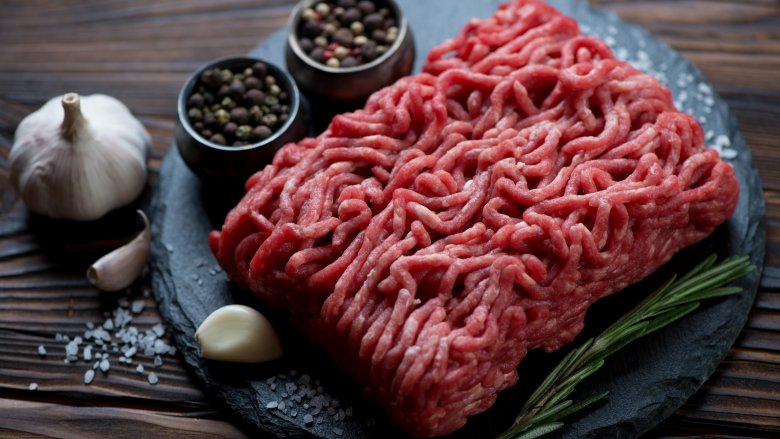
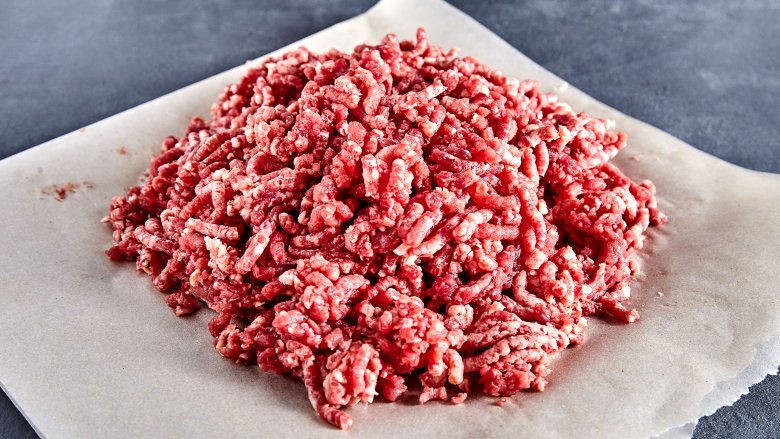
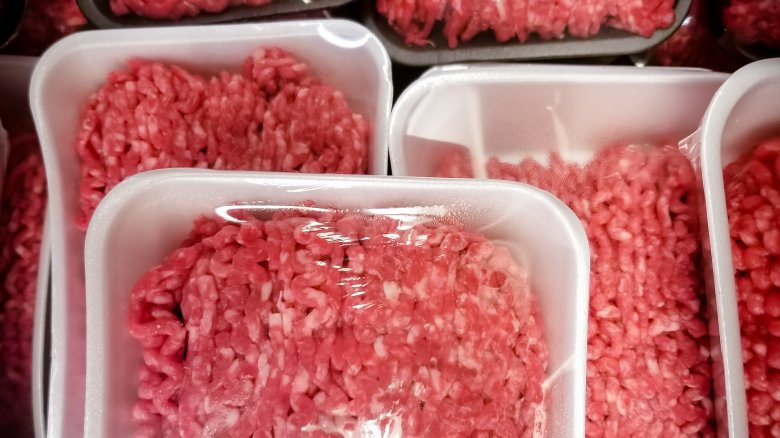
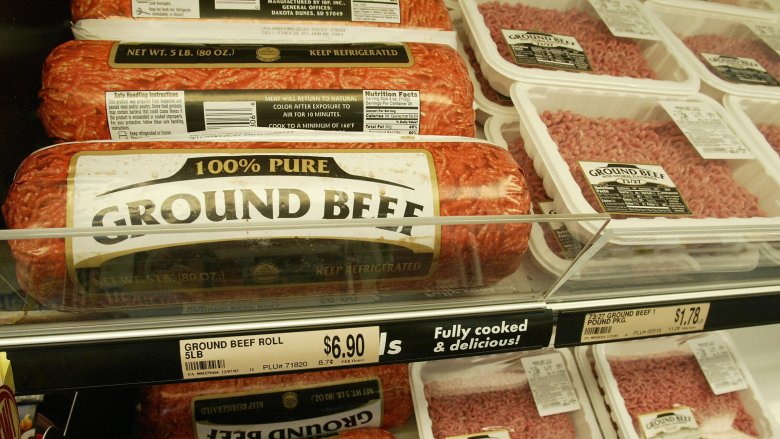
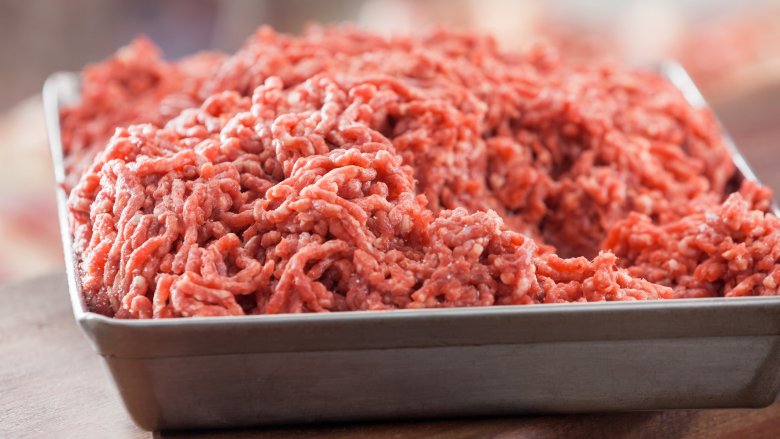
0 Response to "How Is Good Ground Beef Supposed to Smell"
Post a Comment